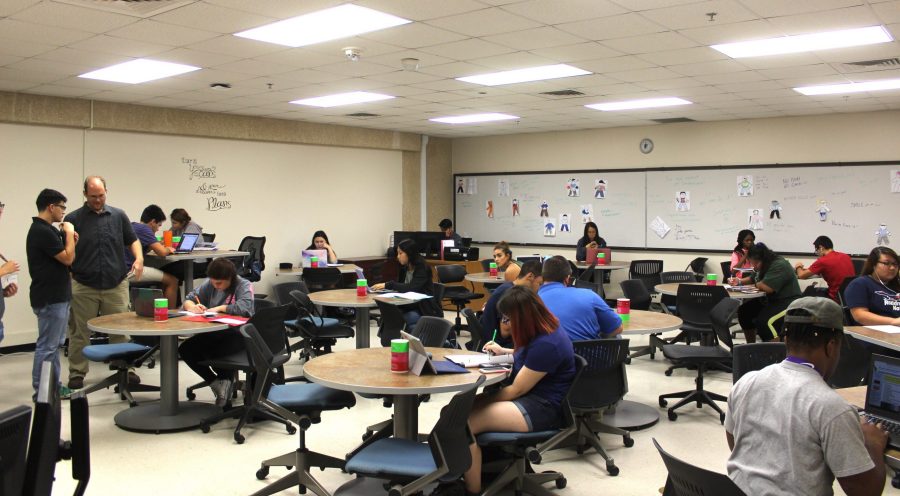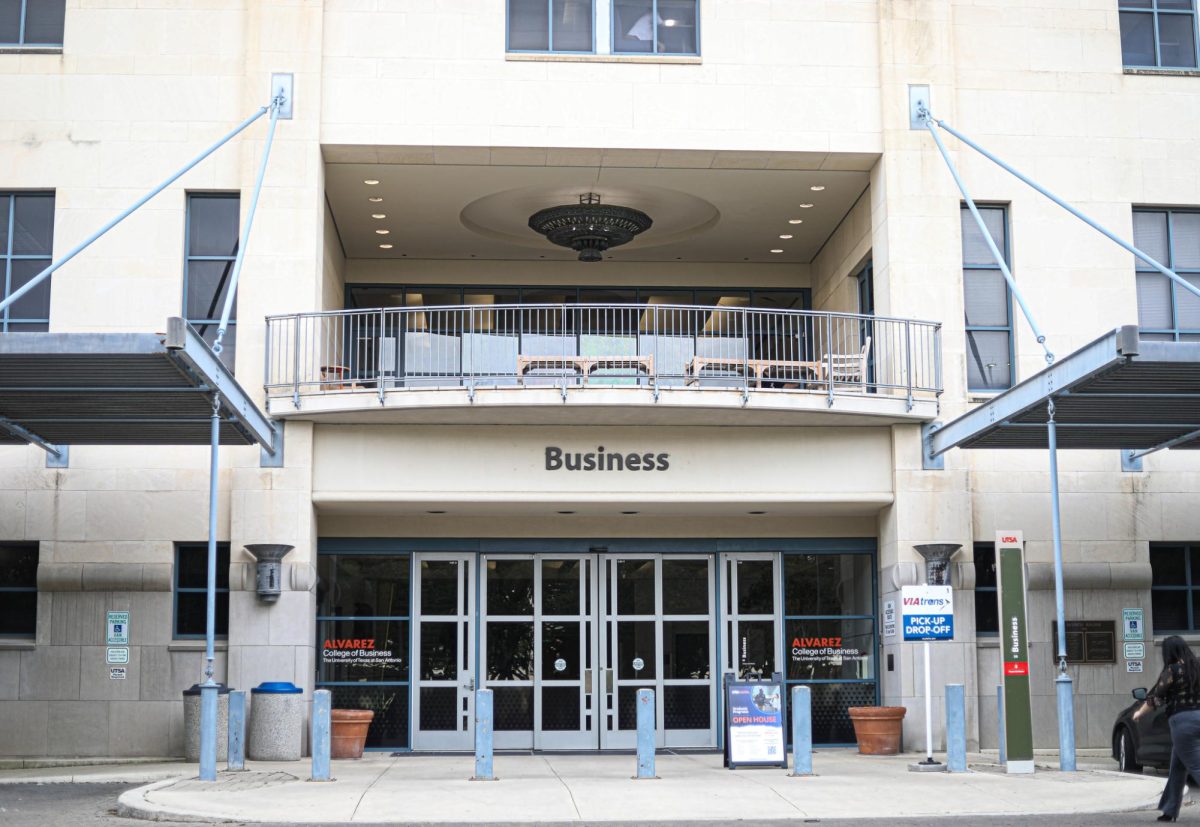The Math Matters program utilizes lab-based learning and fewer instructor lecture periods for its core curriculum in three classes this fall. UTSA is expanding its math lab through the support of a $2.9 million grant from the University of Texas System and promotion of the Coordinated and Linked Approaches to Student Success (CLASS) program.
The Math Matters program was originally designed to help with remedial or developmental math courses. Dr. Rhonda Gonzales, Vice Provost for Strategic Initiatives, and several other faculty members visited universities such as Louisiana State University and Central Florida University to learn more about implementing a Math Emporium model.
“These are universities that have been doing the emporium for over 10 years. They moved more toward a collaborative model, even in the lab,” said Gonzales. “Overall, it is about what students need to succeed.”
The Math Emporium model uses a system of guided notes, open source textbooks, lab hours and ample amounts of group work. The idea for the model limits the lecture to once a week, but gives students easy-to-follow notes that follow a free textbook. Each student is required to be in the Learning Lab a minimum number of hours, completing homework or working on practice problems to better understand the material. Students work together in groups to answer questions posed by their peers while professors and tutors monitor the group work to jump in when students struggle.
This year, the university expanded the initiative through the CLASS program to offer emporium learning for MAT 1033 (Algebra with Calculus for Business) and MAT 1093 (Precalculus). Each student is estimated to save $100 per semester by using the open-source textbook and the open source practice problems (WeBWorK).
In a recent survey, students took a moment to explain how the learning style helped with the difficult coursework. One student described the WeBWorK assignments as, “the most useful tool I’ve ever had in any math class.”
In summer 2016, the university began its pilot program to offer emporium style curriculum for MAT 1073 or (Algebra for Scientists and Engineers). The Math Matters program began in one section of MAT 1073. This initial course yielded a result of 67 percent of students earning an A or B in the class. In fall 2016, the Math Matters program outperformed standard MAT 1073 courses; 46 percent of students in the course earned an A or B.
“We meet one hour twice a week,” said Jonathan Brucks, lead instructor of the Math Matters program. “We know research has shown that students learn math by doing math which is the idea of minimising lecture and increasing lab presence.” The current program is operated by Brucks and Director of Tutoring Services Cindy McCowen.
One student survey said, “I felt that the structure the course provided was helpful towards me actually comprehending what is historically a difficult subject for me. Having to come to class with notes on the reading forced me to read the subject material outside of class. This class is well suited to students who can consistently display good effort.”
According to the administrators, the Math Matters program is trying to change the paradigm for learning math. “We are really trying to make the labs a destination, a place to grow,” said McCowen. “Students know they can come in and get the help that they need; there are plenty of tutors available.”
The Math Matters program would like to expand past the current three classes into a university-wide learning style. They plan to use current grant money to increase learning lab space by 100 seats, hiring a systems analyst to develop content within the WeBWorK program and a lecturer with administrative duties. Within the next year, the program wants to add an additional 450 seats to the learning lab space.












